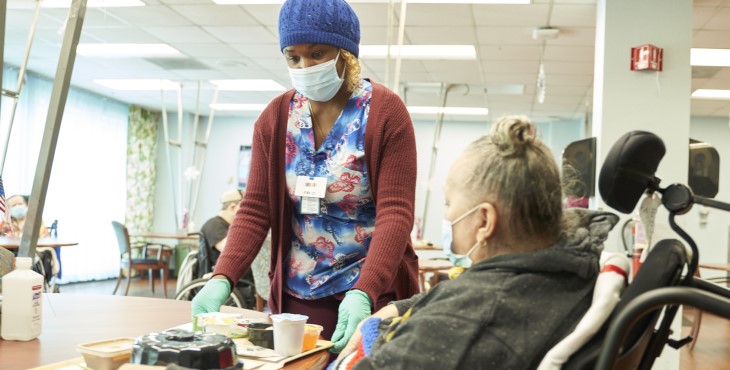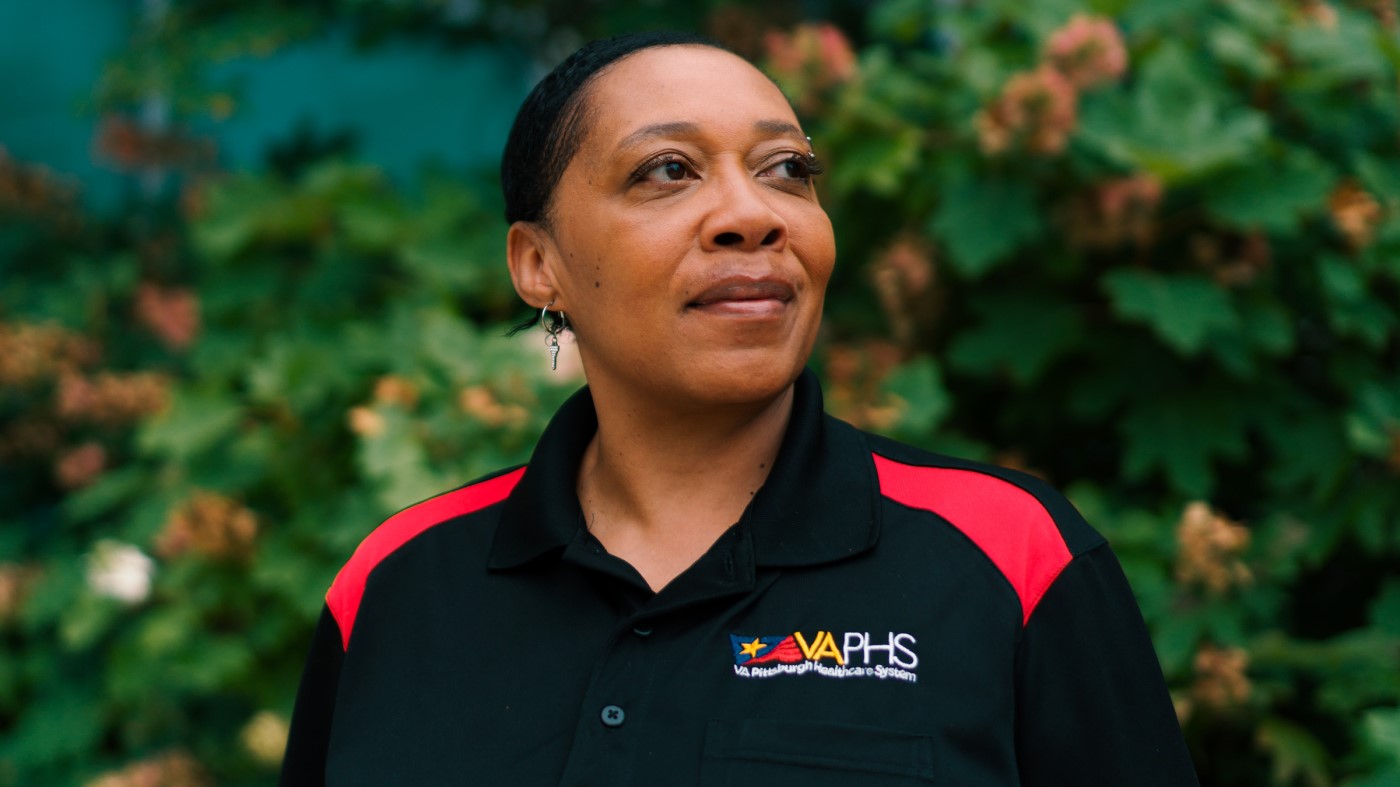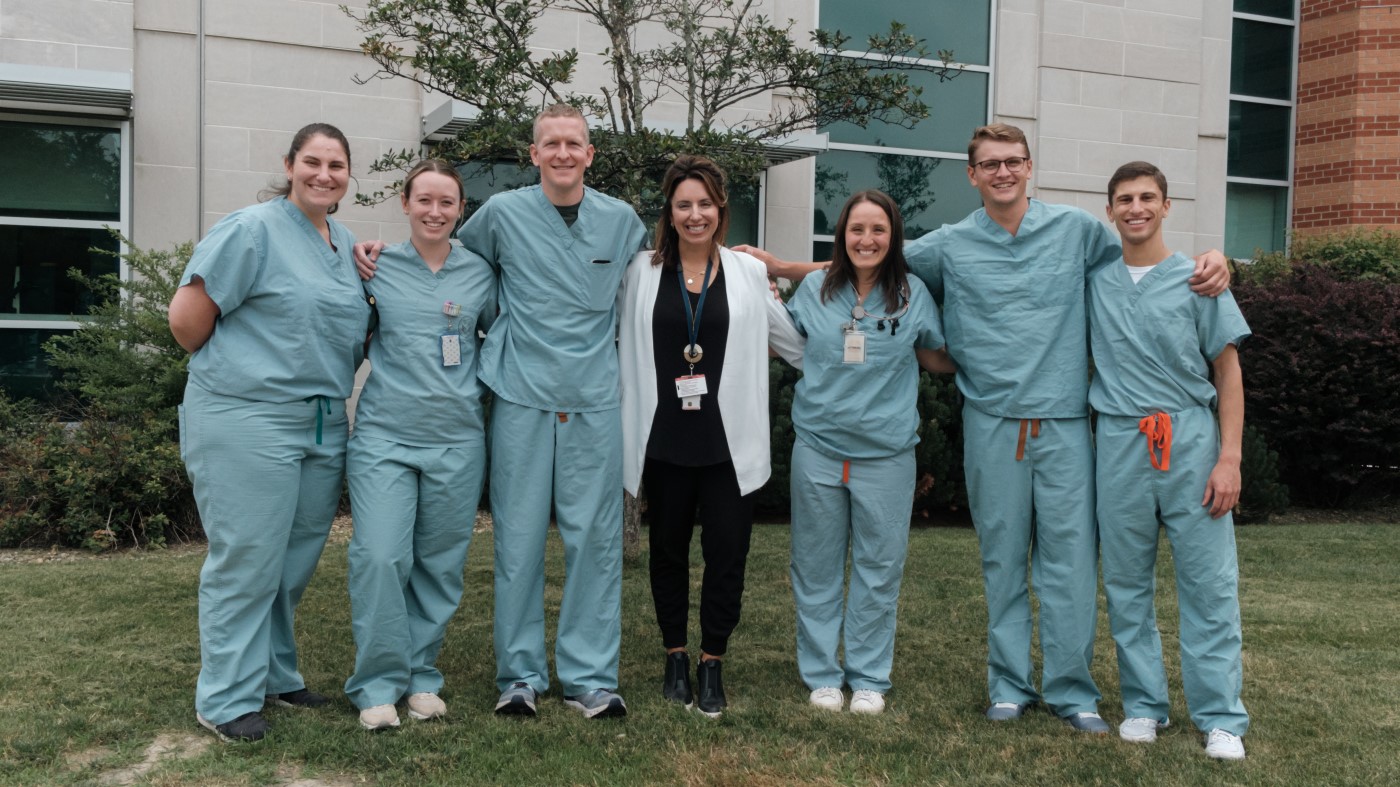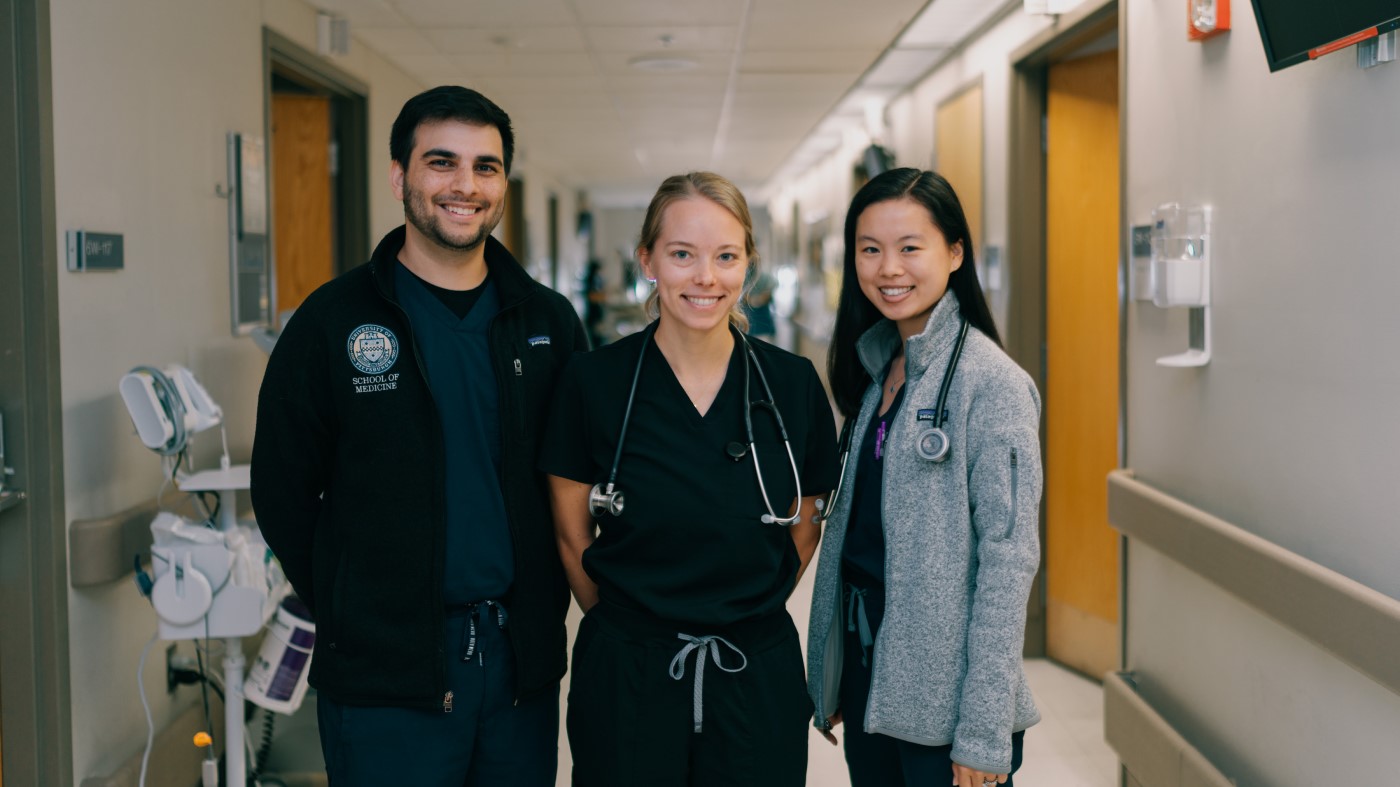VA’s community living centers are a home away from home for Veterans in need of around-the-clock skilled nursing and medical care.
At more than 100 centers across the nation, we help Veterans get back on their feet, care for those suffering from dementia and other cognitive issues, and provide palliative and end-of-life care.
Working as a long-term care nurse with this unique patient population is a career that comes with plentiful rewards.
“Long-term care nursing is a specialty. Being in this trusted position as a long-term care health care worker is to be at the forefront of health care delivery,” said Melissa Lasley, RN, nurse recruiter for the VA Maine Healthcare System.
Consider a VA career
Lasley doesn’t just have one reason to consider a career caring for Veterans at one of our community living centers – she has 12 of them.
- It’s rewarding. “After finishing a day of work in dementia care, I leave my shift knowing I made a difference in the residents’ quality of life. At times, it feels rewarding in small ways, like de-escalating an anxious resident or engaging them in an intervention. Other times, it’s by being with the resident during their final hours and helping them to connect with family members. In all ways, big and small, we make a difference.”
- It’s refreshing. “Residents have often given up caring about what people think and, therefore, say exactly what they mean.”
- It’s entertaining. “They have amazing stories. Even Veterans with relatively advanced dementia can recall events from distant past, and it can be good for them to do so, so just ask.”
- It’s important work. “As of 2017, the number of Veterans living with dementia was more than 750,000. An estimated 420,000 additional cases were diagnosed between 2010 and 2020. This is a critical mass of heroes, each of whom deserves quality care.”
- It’s an honor. “When working with seniors, we often come across those who have lived through loss, immigrations, wars and much more. With all their life history, I always feel thankful and honored that I am entrusted to get to know them and provide the best possible care I can.”
- It’s challenging. “Working with clients with dementia is something that not only requires experience and training but continued professional development over time. There is so much to learn about working with this population and room for continued improvement.”
- It’s a specialty. “Nurses can develop a sense of pride in becoming an expert in geriatric care, just as they can with any other specialty. When an elderly patient experiences trauma, goes into anaphylactic shock or contracts a urinary tract infection, the clinical picture is far different from that of a 30-year-old. Having the knowledge to quickly assess and treat problems can drastically improve the quality of life for our Veterans.”
- It’s a learning opportunity. “Veterans teach us from the moment we first meet. Often, it is just by being witness to their story. Other times, Veterans take on a teacher-like role, which may help them feel empowered, autonomous or a reconnection with their sense of self. From my work in dementia care, I’ve learned that I shouldn’t take life so seriously, laughter and humor are key, courage can always be found, and feeling connected is everything.”
- It’s about the moment. “The reality of working with Veterans who have dementia is they may not recall working with you or having met you the week prior. This means our goals and objectives often need to pertain to a resident’s quality of life within the given moment rather than from week to week.”
- It’s all about connection. “Building a trusting therapeutic relationship with resident Veterans is of key importance, and building a connection sometimes takes more than verbal interactions. A typical conversation is not always possible. Sometimes, connection is accomplished simply through a calming presence and a gentle approach.”
- It’s someone’s parent. “Yes, this is sentimental, but the Veteran geriatric population have some miles on them. They may have fought in wars, raised families and experienced loss. Call it karma or responsibility, but when I care for geriatric Veterans, I hope when my family members grow old and sick, someone takes good care of them too.”
- It’s thought-provoking. “Making connections with Veterans who have dementia is about much more than following rules and standards on building rapport; it’s about an intuitive feeling they perceive from your intentions when you approach. After caring for many within the geriatric population and likely attending their deaths, it’s difficult not to be drawn into wondering what amends, regrets and triumphs YOU will have at the end of your life.”
Cutting edge of care
If you need a 13th reason to pursue a career in long-term care nursing at VA, consider this: our community living centers are on the forefront of change.
VA Maine and many other centers are transitioning to a more patient-centered culture based on the needs and preferences of Veterans. At VA Maine, they will be breaking ground soon on a “small house,” similar to the Green House models adopted at some of our other community living centers.
These cozy buildings are designed to house small groups of Veterans and include community kitchens and dining rooms, private rooms and bathrooms, and ample outdoor living space.
“All are an important part of the holistic approach to caring for our Veterans, providing a home setting they are comfortable and proud to live in,” Lasley said.
Work at VA
Give back to a generation of Veterans who has provided so much for their country. Explore a long-term care nursing position with VA.
- SEARCH for long-term care nurse and Community Living Center (CLC) nurse positions with VA.
- LEARN more about the benefits we offer.
- APPLY for open positions at the VA Maine Community Living Center.
NOTE: Positions listed in this post were open at the time of publication. All current available positions are listed at USAJobs.gov.
Topics in this story
More Stories
If you’re looking for an opportunity to provide care to Veterans outside a traditional clinical setting, Home Based Primary Care (HBPC) is a great option.
A key part of your job search is finding the right fit for you and your skills, and workplace culture can impact that dramatically.
VA offers numerous pathways into mental health careers, including scholarship opportunities for college students. Learn more.







I am interested in taking a “long term nurse course” to learn about CPR and other information to take care of my wife and myself. I am 100% service-connected disabled for “Individual Unemployability”; 100% for Disabled and !00% for PTSD. How can I have the VA to approve this course for me?
VA Careers provides great hospitality for each patient and the nurse takes care of every people very homely. This society is very essential for poor and needy people for this time.